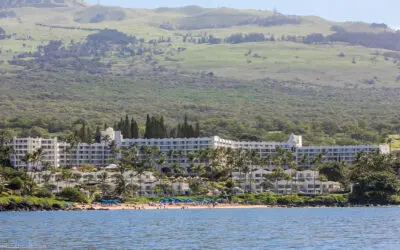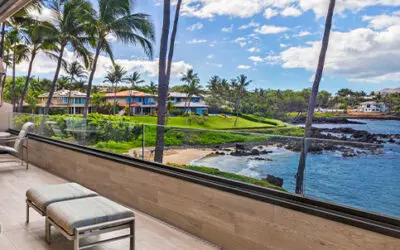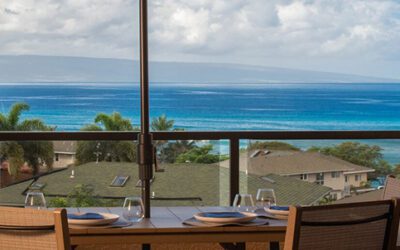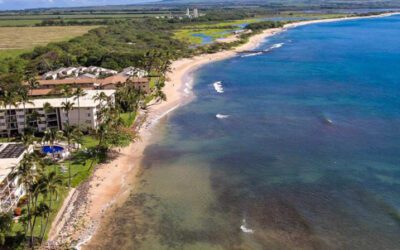Maui is an enchanting Hawaiian destination boasting unparalleled beauty, a rich cultural heritage, and the warmest hospitality you’ll find anywhere in the world. However, on August 8th, a heart-wrenching tragedy unfolded on our beloved Maui when a relentless wildfire engulfed the area of Upper Kula and the entire historic town of Lahaina.
This devastating blaze, ignited by multiple fires and fueled by unforgiving winds, was exacerbated by arid conditions stemming from a passing hurricane to the south of the islands. This catastrophic event now stands as the deadliest wildfire in the nation’s history, with the loss of 98 lives recorded thus far. Now, more than ever, our island seeks the support of visitors who respectfully and responsibly visit Maui to assist in our journey of recovery and rejuvenation.

In light of this tragedy, we wish to emphasize the significance of respectful travel and responsibly visiting Maui. It’s not merely about taking a vacation; it’s about participating in the healing and rebuilding of a community that has faced immense adversity. Our intention is to help you navigate a mindful approach to Maui during this period of recovery, while also respecting the unique culture and environment that make this island so extraordinary.
How Do You Respectfully and Responsibly Visit Maui After the Fires?
- Learn about Hawai’i’s culture and values
- Be mindful of respectful interactions with West Maui residents
- Respect boundaries and forbidden areas
- Leave the island better than you found it
- Protect Maui’s beautiful environment and ecosystem
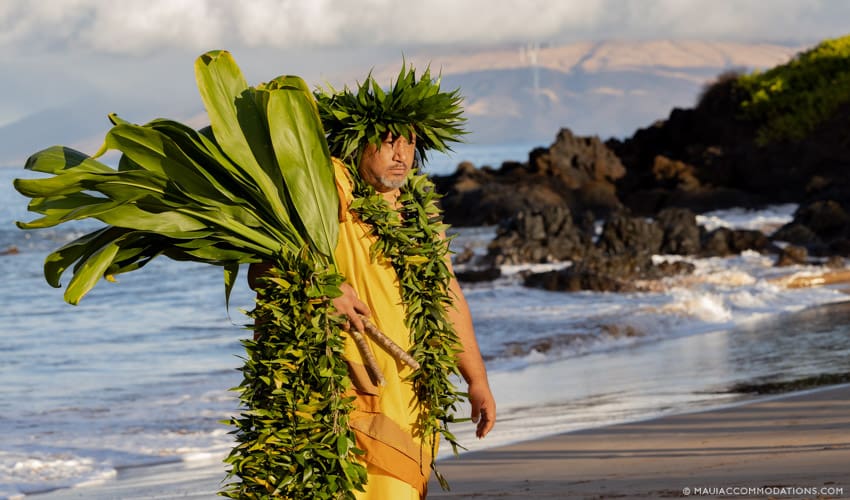
Learn About Hawai’i’s Culture and Values
One core Native Hawaiian value: If you care for the land, the land will in return care for you.
Before you embark on your journey to Maui, take the time to learn about the culture and values of Hawai’i. Immerse yourself in the local culture by visiting cultural sites, taking classes on lei-making, and discovering the history and significance behind traditions such as hula and chanting. It’s essential to understand words like kuleana (responsibility), malama (to care for), and kokua (help), as they are central to Hawaiian values.
If you’re traveling with your keiki (children), seek learning opportunities for them to better understand the differences between Hawaiian culture and your own. Find the beauty of Hawaiian values and discuss it with your travel partners. Hawaii is so much more than hula skirts and Mai Tais, make it your mission to learn more about the place you’ve chosen to visit!
PUT TO ACTION
- Visit a Museum. Read the placards displayed at the various overlook points or cultural sites.
- Plan to join a cultural class held at your hotel’s cultural center or at a nearby shopping center like Shops at Wailea.
- Admire and learn about the artwork at your hotel, in a nearby art gallery, or displayed as a huge building mural depicting Hawaiian culture and moʻolelo (stories).
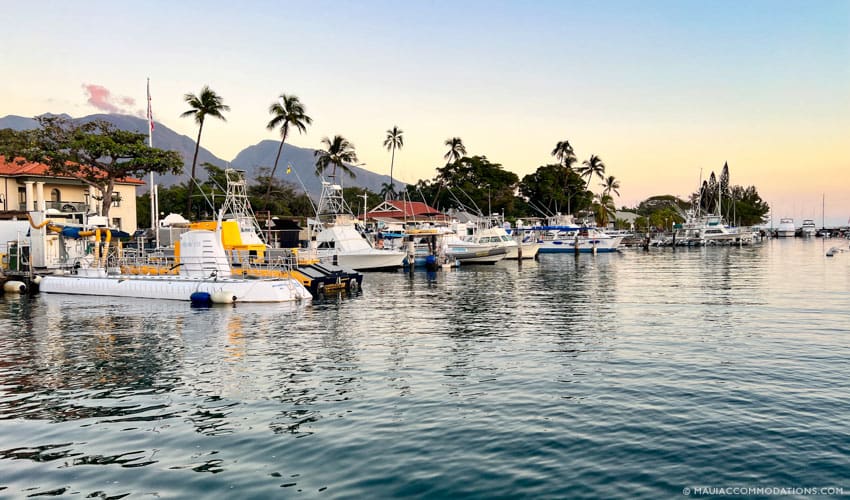
Respectful Interactions with West Maui Residents
Put kindness and respect first. Be patient with us.
During this period of recovery in West Maui following the devastating Maui fires, it’s essential to approach interactions with local residents with sensitivity and respect. While the “Aloha Spirit” is a significant part of Hawaiian culture, it’s important to understand that the community is still healing from the trauma of the fires. When engaging with West Maui residents, it’s best not to re-trigger painful memories by asking about how they fared during the fires. Show empathy, provide compassion, be patient and understanding, and allow the healing process to unfold naturally, understanding that the scars of such a tragedy may run deep for many in the community.
Tourism and customer service are significant sectors providing livelihoods for our residents, but it’s important to acknowledge that you may encounter inconveniences during your visit, such as restaurant closures, reduced services in hotels, and limited availability in stores. It’s crucial to keep in mind that your minor frustrations, like encountering short-staffed businesses or favorite spots being closed, should be put into perspective. These inconveniences should not be vocalized in a way that unintentionally disrespects or belittles someone nearby who may have suffered profound losses in the recent fire.
PUT TO ACTION
- Avoid asking residents for fire-related details such as, ‘Did your family survive?’ ‘Where were you when it happened?’ ‘Thank God you’re alive’ (when maybe their loved one isn’t).
- Rethink complaining about how you can’t go to your favorite Front Street restaurant anymore, or can’t access certain areas that are closed down. Tolerance for these self-centered remarks will be minimal.
- If a resident appears to be an open book, still ask for permission before digging deeper into their experience on August 8th.
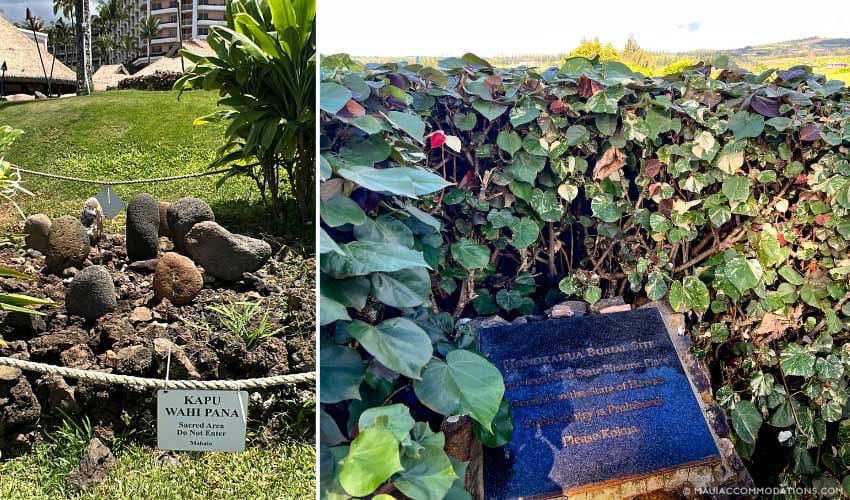
Respect Forbidden Areas
Kapu means forbidden. Wahi Pana means sacred, significant and/or culturally sensitive sites.
If there is a sign designating an area as ‘KAPU,’ do not go any further. Always ask for permission before entering restricted areas. These places may hold cultural or ecological significance and should be treated with the utmost respect. Right now, entering Lahaina town is Kapu. Engaging in gawking, taking photos, or exploring the burned area of Lahaina town can be seen as offensive and fails to respectfully honor the lives lost, reducing them to a mere spectacle.
PUT TO ACTION
- Do not try to see the fire impact zones of Lahaina and Kula.
- Follow the rules. It is currently illegal to pull over on the side of the road along the overpass portion that stretches above Lahaina town.
- Adhere to various signs found along the Road to Hana telling you to not enter. It is likely on someone else’s property or considered sacred.
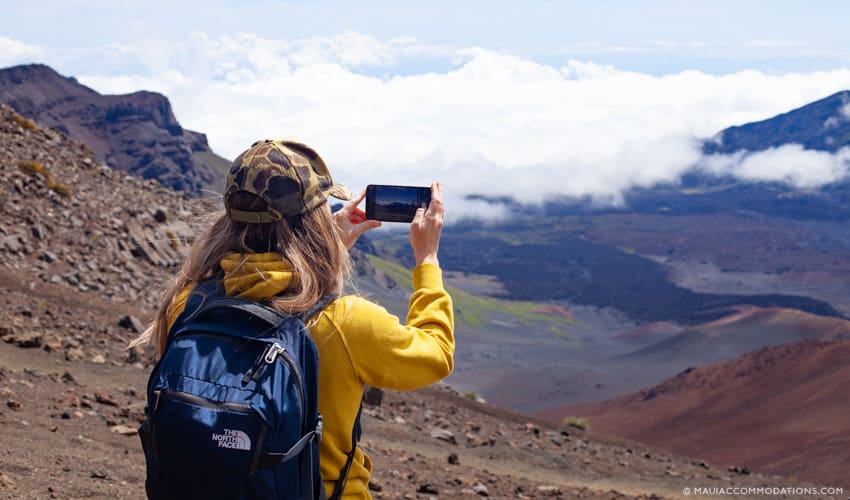
Leave the Island Better Than You Found It
“E nihi ka hele” — tread lightly and leave no trace of harm behind — a song by King David Kalākaua.
A large part of Maui’s charm lies in its pristine landscapes and vibrant ecosystems, but the preservation of this beauty depends on the collective efforts of the community. This commitment manifests in various ways, including being conscious of your environmental impact and the county’s efforts to control overcrowding at popular spots like sunrise up at Haleakala and Wainapanapa State Park (Black Sand Beach) in Hana.
You can actively participate in community cleanup initiatives and show your support for local conservation endeavors. Currently, one of the most respectful and responsible ways to experience Maui is by positively contributing to its recovery process, whether through volunteering on Maui or patronizing local businesses.
PUT TO ACTION
- Pack it in, Pack it out. Whatever you have packed for a hike or destination, such as snacks, drinks, and clothing, ensure you bring it back out with you. Always use trash receptacles.
- While some trees boast an abundance of flora, others may have only a few remaining flowers. Do not pluck these sparse blooms, so the rest of the community can enjoy its beauty as well.
- Clean your shoes before and after hiking to avoid spreading seeds or plant material that are invasive and cause an increased risk of erosion or plant diseases such as Rapid ‘Ōhi‘a Death.
- While snorkeling, admire the coral from at least a 10-foot distance. Breaking, taking, or damaging coral will cost you up to a $3,000 fine.
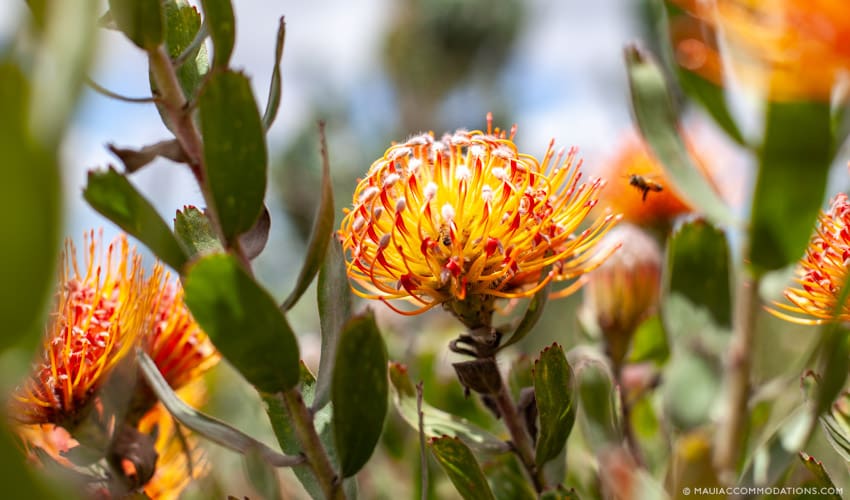
Protect the Environment
Stewardship is everyone’s kuleana (privilege and responsibility)
Maui’s fragile environment and ecosystems need our protection. Adopt sustainable practices by using reef-safe sunscreen to protect the island’s coral reefs, offering plenty of space to wildlife, and staying on designated trails. This not only minimizes environmental damage but also supports regenerative efforts aimed at reducing erosion and promoting the growth of plant life. Leave only footprints and take unforgettable memories with you.
PUT TO ACTION
- Use reusable drink containers and shopping bags.
- Choose biodegradable and compostable products and avoid single-use plastic.
- Recycle aluminum and plastic bottles.
- Wear reef-safe sunscreen only to avoid coral-bleaching and the degradation of the reef. Purchase mineral sunscreen locally to support local businesses and ensure it is actually reef-safe.
- Give Honu (Hawaiian Green Sea Turtles) a 10-foot distance, and endangered ‘Īlioholoikauaua (Hawaiian Monk Seals) 50 feet for adults and 150 feet for their pups. Violating this could result in up to 5 years in prison and a fine between $15,000-$50,000!
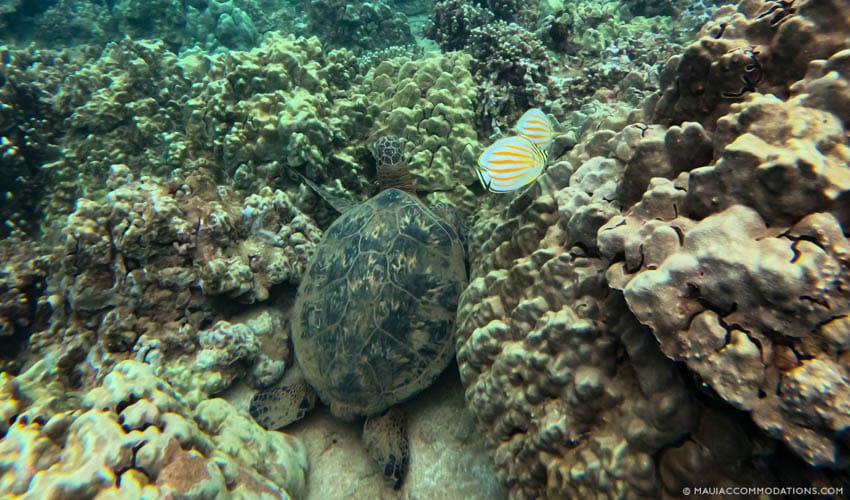
Maui, Hawai’i transcends its reputation as a typical travel destination; it’s a province steeped in rich culture, enduring customs, and an unwavering connection with the land and sea. As you prepare for your Maui adventure, prioritize responsible travel and a respectful visit. Hold profound respect for the island’s residents, their cherished traditions, and the pristine environment that cradles them. By embracing these values, you actively contribute to Maui’s resurgence, ensuring the Valley Isle remains a cherished sanctuary for future generations. Travel with mindfulness and carry the spirit of Aloha within your heart, making your Maui visit a truly respectful and responsible experience.
- Looking for great places to stay on Maui? You’ll save by BOOKING DIRECTLY with the owners/managers of these accommodations.
- Looking for Maui deals? Sign up here for our free monthly Maui Deals & Steals e-newsletter with the latest book-direct deals from our advertisers.
Happy Travels!
Questions? Comments? Drop me a line:![]()
(Note: We recognize and respect the significance of the ‘okina and kahakō markings in the written Hawaiian language; however, we have omitted those diacritical markings on our site in order to integrate with the more common spellings used in online searches.)
©Copyright 2015-Present Maui Accommodations Guide. If you wish to share content from our site, you may do so only by publishing a link to our original content on MauiAccommodations.com, so full and clear credit is given to us. Any other unauthorized use and/or duplication of any materials on this site (either text or photos) without our express and written permission is strictly prohibited. For permission to use excerpts or photos from our site, please contact the publisher. Mahalo!

 Aloha! Tiffany here. I've been blessed to call Maui home since 2011. With a background in the island's finest restaurants and hotels, guiding visitors to create unforgettable Maui memories is more than a skill I've mastered—it's a profound source of joy for me.
Aloha! Tiffany here. I've been blessed to call Maui home since 2011. With a background in the island's finest restaurants and hotels, guiding visitors to create unforgettable Maui memories is more than a skill I've mastered—it's a profound source of joy for me.
